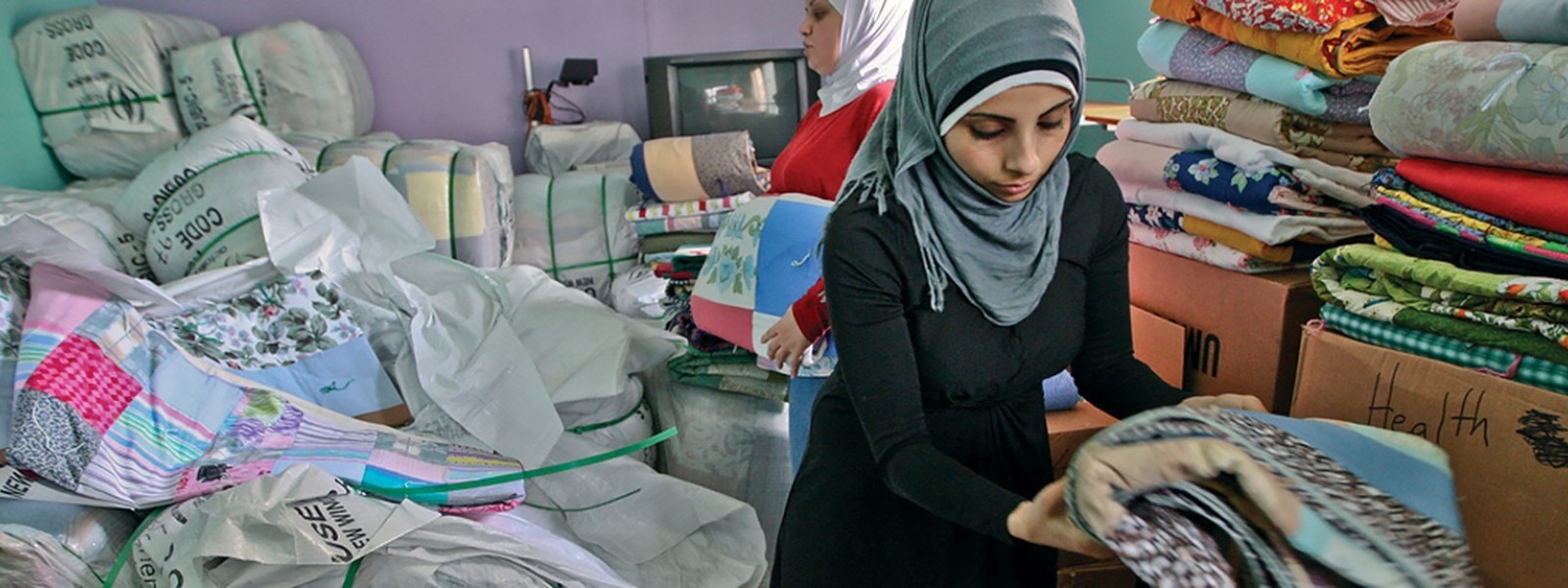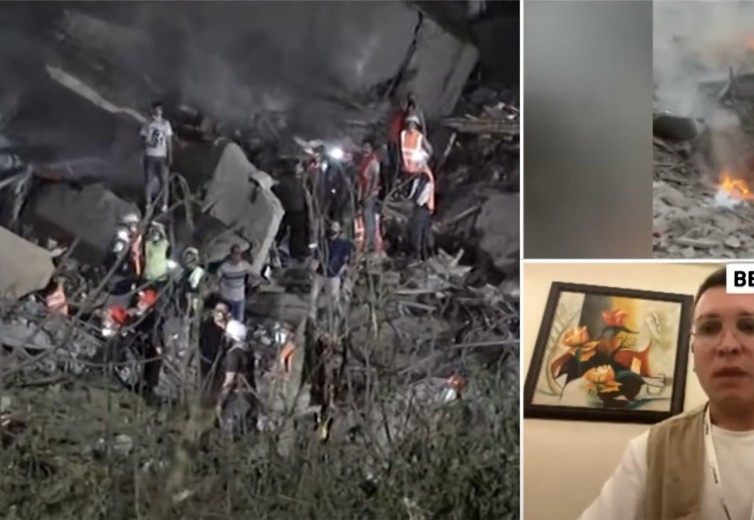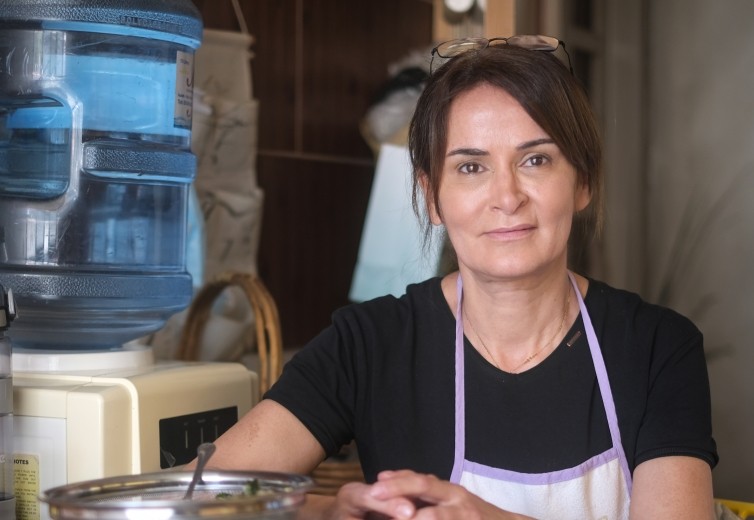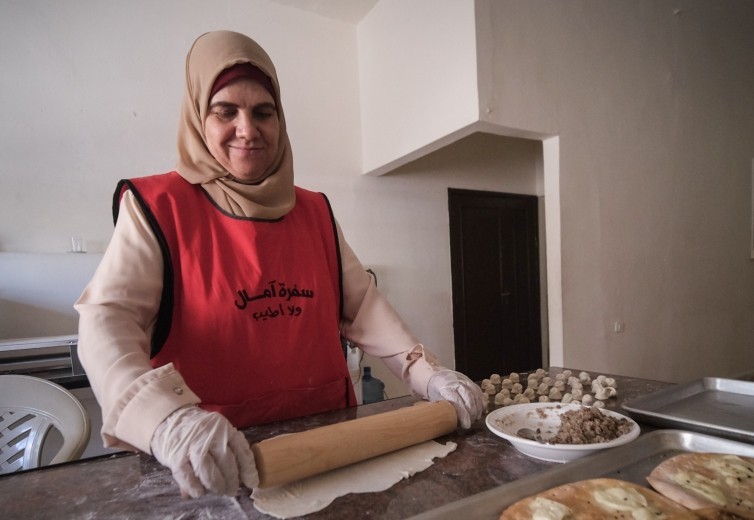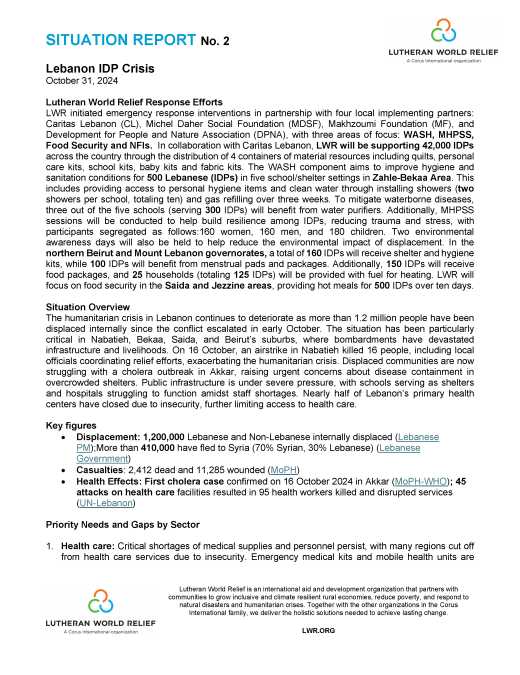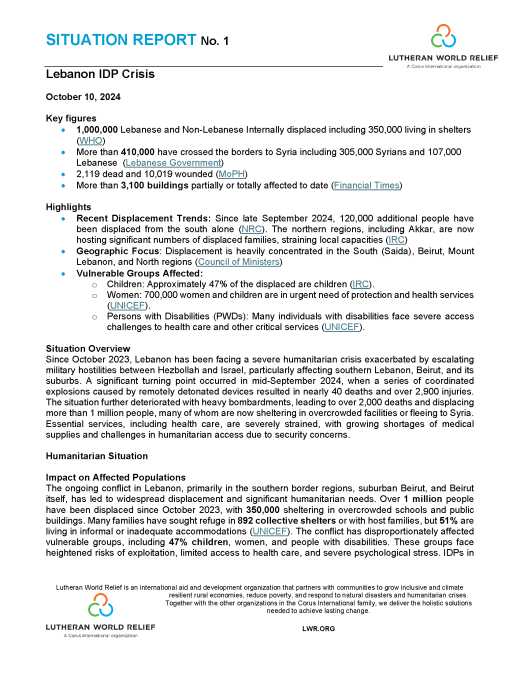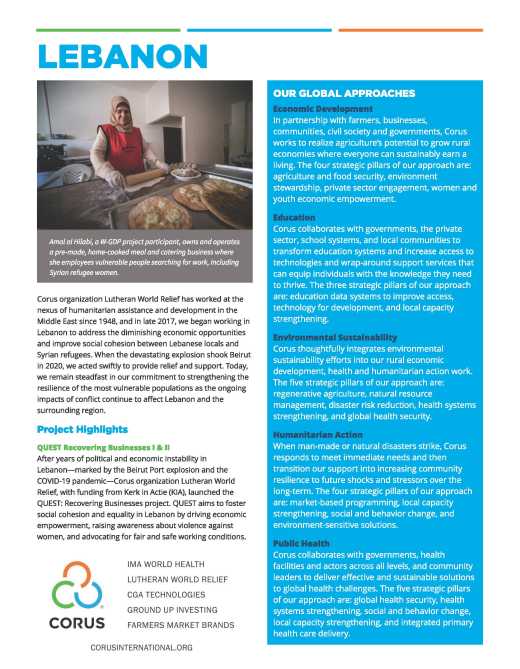Noura Dereki had always been interested in starting her own business. But like many in Lebanon, the country’s economic crises forced her into it. When her husband lost his job, the family couldn’t afford to keep her daughter in school, let alone support herself. The crisis presented her an opportunity to start a business selling jarred produce that are staples in many homes. Lutheran World Relief connected her to mentors and training that helped her realize her dream of opening a store. “I have extra energy now because I want to support my kids,” she said.
Lutheran World Relief has worked at the nexus of humanitarian assistance and development in the Middle East since 1948, and in late 2017, we began working in Lebanon to address the diminishing economic opportunities and improve social cohesion between Lebanese locals and Syrian refugees. When the devastating explosion shook Beirut in 2020, we acted swiftly to provide relief and support. Today, we remain steadfast in our commitment to strengthening the resilience of the most vulnerable populations as the ongoing impacts of conflict continue to affect Lebanon and the surrounding region.
-
Noura supports her children
- Amal’s caring heart
- Lauren’s next chapter
- Amal’s caring heart
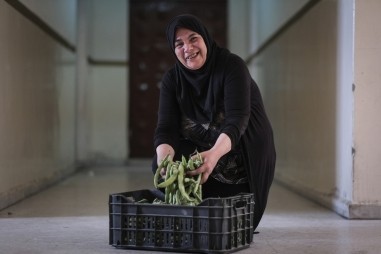
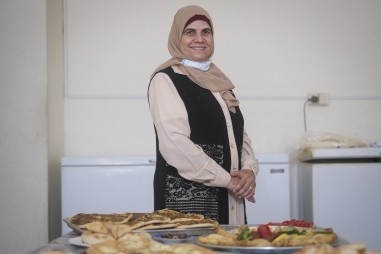
The plight of Syrian refugees and others who are disadvantaged spoke to Amal al Hilabi. “I have a love of giving,” she said. “I wanted them to have some income, and so I started this business.” Now her kitchen features eight women who cannot make frozen kibbeh fast enough to keep stores stocked. Lutheran World Relief helped Amal broaden her business to employ more people in need, making the kitchen where women talk and laugh while cooking even more crowded. “It wasn’t food, humanity brought us together,” she said. “My mission is for anyone who wants to work to be able to come and work.”
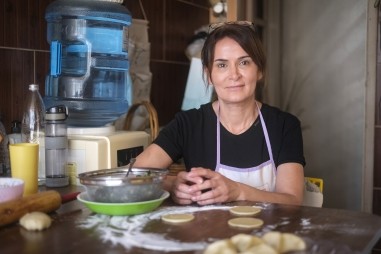
Cooking is one way Lauren Faress copes with her husband’s recent death. But when friends encouraged her to start making meals to sell, she discovered renewed purpose. “I wanted to work. I needed to work, I like working,” she said. So she’s transformed her kitchen into a foodie paradise. Lutheran World Relief empowered Lauren to harness her talents and her son's social media marketing expertise, providing her with the tools and training needed to grow her business beyond the confines of her kitchen table.
Project Highlights
After years of political and economic instability in Lebanon—marked by the Beirut Port explosion and the COVID-19 pandemic—Corus organization Lutheran World Relief, with funding from Kerk in Actie (KIA), launched the QUEST: Recovering Businesses project. QUEST aims to foster social cohesion and equality in Lebanon by driving economic empowerment, raising awareness about violence against women, and advocating for fair and safe working conditions. A key focus of the initiative is empowering women entrepreneurs to grow their micro and small businesses, thereby creating new job opportunities. In its second phase, the project shifted its emphasis toward strengthening the business-enabling environment and ecosystem for entrepreneurs and enterprises. It also prioritized improving access to finance for micro and small enterprises, with the goal of driving business expansion, job creation, and broader economic empowerment.
With funding from the Evangelical Lutheran Church in America (ELCA) and in partnership with Al Majmoua Microfinance Institution, Lutheran World Relief is currently implementing phase II of the AMAL project, which means “hope” in Arabic. The project expands financial and economic inclusion across Lebanon by providing subsidized financing, digital financial services, financial literacy programs, and business development support to sustain businesses during times of insecurity. The project especially works with women, youth, displaced individuals, and host communities to improve access to affordable microcredit, promote cashless transactions via e-wallets, and enhance financial literacy through training and advisory services.
Through the RETURN project, funded by USAID’s Bureau of Humanitarian Assistance, Lutheran World Relief facilitated the safe return of 2,000 of the most vulnerable survivors of the Beirut blast to their residences, repairing damaged homes to habitable status and affording some stability to families already coping with economic, political and pandemic crises.
This W-GDP project supported women entrepreneurs as catalysts for positive change in business, as well as in their families and communities. Through the project, Lutheran World Relief provided a tailored, externally accredited certification to the women entrepreneurs of USAID’s private sector development programs in Lebanon, some of whom may not have access to higher education or other formal certification programs, to demonstrate their knowledge and gain external corroboration for their businesses in the market. Lutheran World Relief also carried out complementary activities to improve the enabling business environment and link the women to business opportunities that strengthen their resilience capacities.
Through the Agriculture for Peace in Lebanon project, Lutheran World Relief offered Lebanese families and Syrian refugees specialized training on crop production, quality control and marketing, as well as employment opportunities, including an opportunity for women and men to learn how to produce crops in greenhouses. Lutheran World Relief also employed the local workforce to repair and improve irrigation canals and water networks. This work was complemented by training in conflict resolution and prevention techniques, easing social tensions between Lebanese locals and Syrian refugees through income generating collaborations.
Lutheran World Relief worked with Lebanese farmers from host communities and Syrian refugees working in agriculture to strengthen the capacity of 52 small and medium enterprises. The project installed drip irrigation networks and provided technical training to the Lebanese farmers and Syrian refugees. By the close of the project, participants were effectively using water from the drip irrigation schemes, producing higher quality crops with higher yields and saving money.
The goal of this project was to defuse tensions between Lebanese locals and Syrian refugees through mutually beneficial local economic development. Key municipality staff and Lebanese and Syrian community leaders were trained in local resource management and conflict prevention to help mitigate resource-based tensions and defuse local conflicts as project participants engaged together in agriculture-based livelihood strengthening activities.


